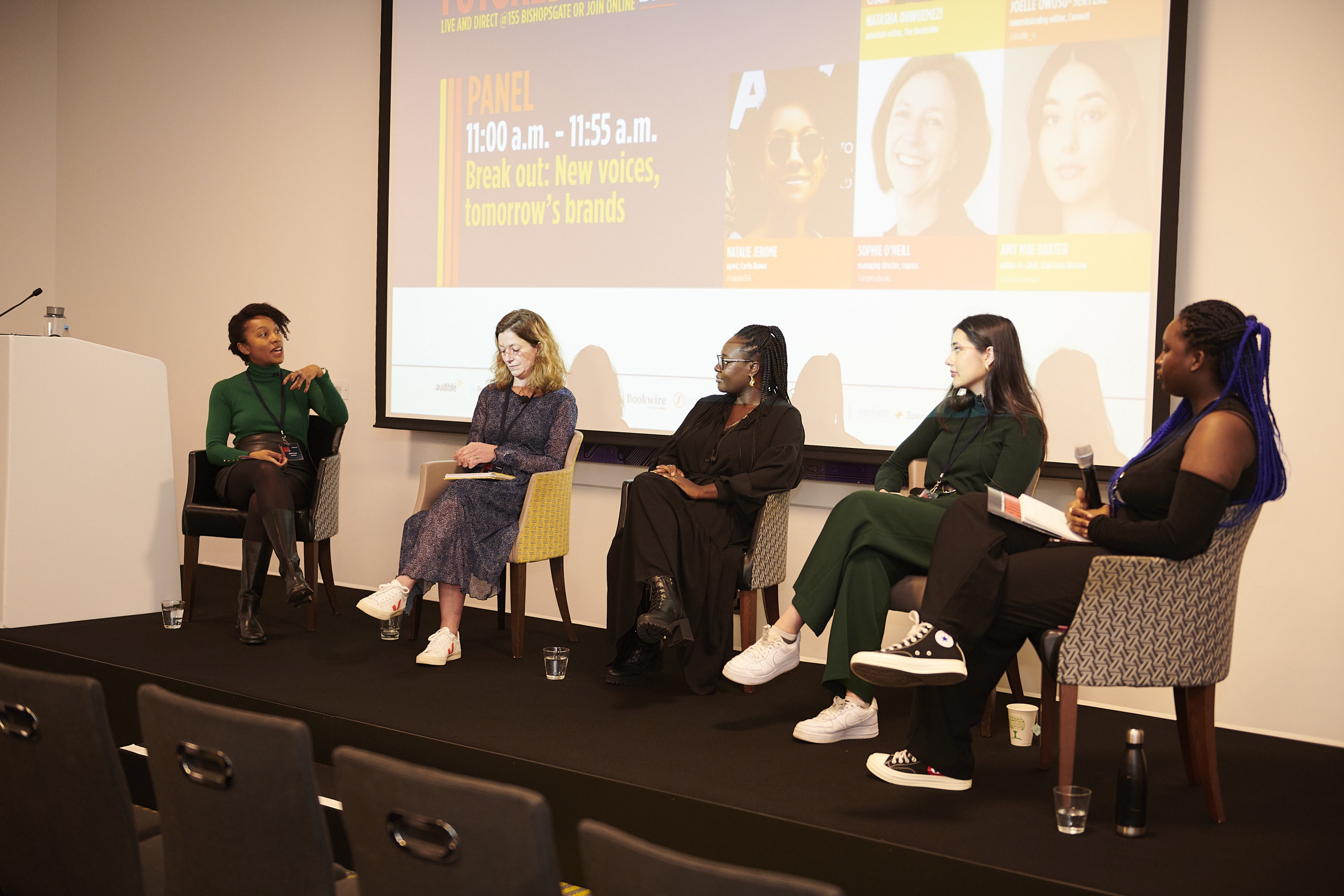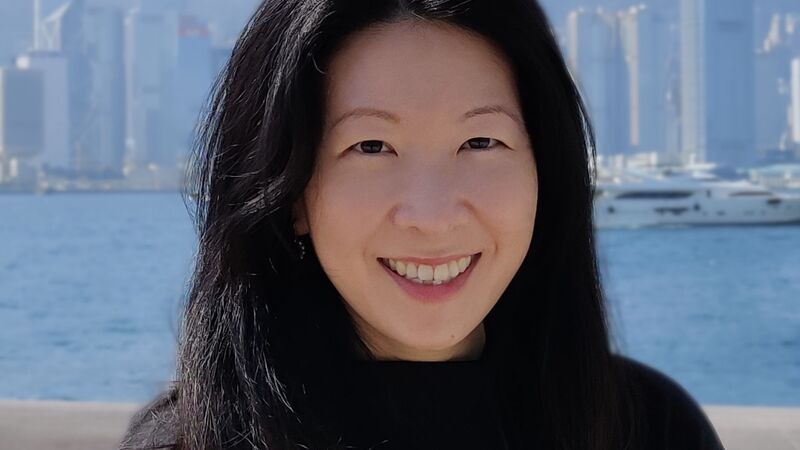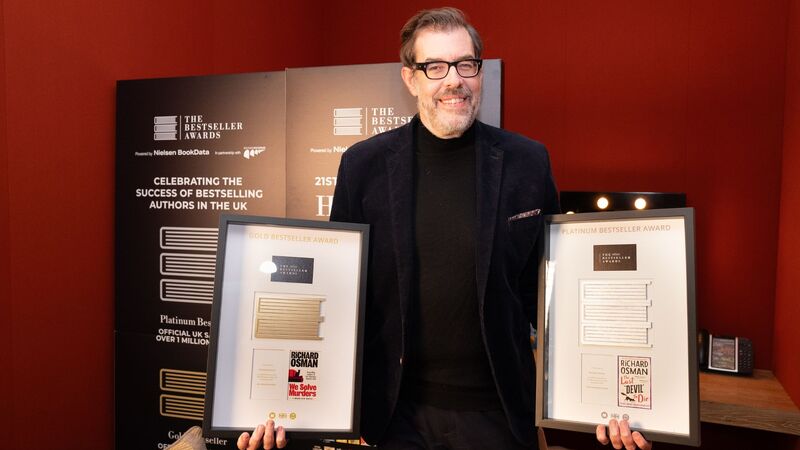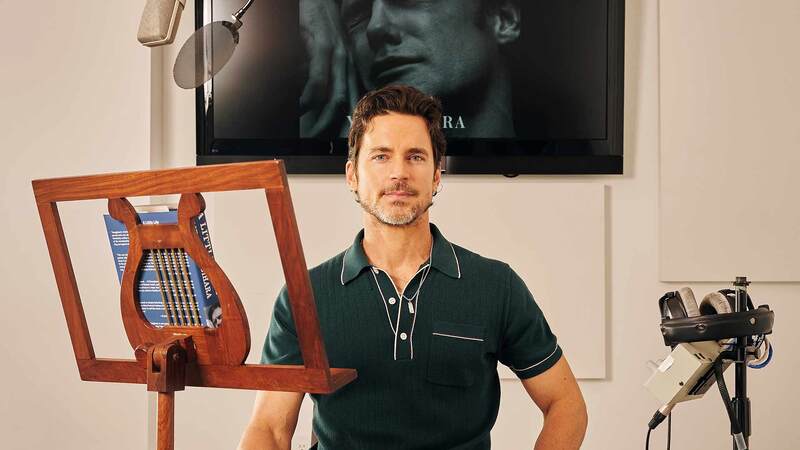You are viewing your 1 free article this month. Login to read more articles.
Industry must innovate and look outside London, FutureBook told
The industry must source talent in innovative ways and focus on hiring differently and looking outside London if any tangible progress is to be made on representation, The Bookseller’s FutureBook Conference heard.
Speaking at the 19th November panel event hosted by Natasha Onwuemezi, associate editor at The Bookseller, Curtis Brown agent Natalie Jerome called for “much more work” to be put in to publishing underrepresented authors.
Jerome (pictured), who is based in Wales said, although positive change has occurred since she started in the industry, there is still an “awful lot of work to be done”. Among the authors Jerome represents is Sir Lenny Henry, whose first children’s book, The Boy with Wings (Pan Macmillan Children's) was released in October. However, Jerome was unable to find a copy of the book in a high street retailer in Newport.
“There are a plethora of writing schemes, and that has been fantastic to see,” she said. "Curtis Brown Creative has being doing stacks — 150 published writers have come through, and they have scholarships for writers. I would like to see so much more — Creative Access has been instrumental in ushering in a pipeline of editors and commissioning editors.”
She said there needs to be a real push to diversify all aspects of the industry including retailers, publicists and marketing teams—a sentiment urged by Roxane Gay and Elizabeth Uviebinené earlier in the conference.
Jerome and Sophie O’Neill, m.d. of Inpress , advocated strongly for regional diversity, challenging the London-centric world of publishing. Jerome has received a “flurry of absolutely amazing work” from Welsh writers, at a time when the Welsh culture minister has just announced £5m for reading schemes, which, among other resources, will enable a of box of books to be delivered to every state school in the country.

Commenting on the continually untapped pool of creatives of colour, the panel urged the industry to utilise different methods of sourcing writers, including connecting with literary magazines, using social media and attending “off-radar events”.
“This talent is not new, it’s just been underrepresented—there needs to me more of a proactive effort to go out and find it,” said Amy Mae Baxter, editor-in-chief of Bad Form Review magazine.
“If we’re treating it as new, then we’re treating it as young. It’s not just about the next debut from an 18 to 24-year-old”. We’re always happy to connect with people: publishers, agents, we have access to a pool of writers who keep getting missed,” she said.
Joelle Owusu-Sekyere, commissioning editor at Coronet, said: “Social media has been massive in changing the nature of access and accessibility—we’re connected to each other—ans that’s massively important when it comes to storytelling. It’s forever changing, fast, straightforward.”
Speaking to Onwuemezi in a separate session, author Toni Tone agreed social media was “so important”. She said: “My social media following helped me get on the Sunday Times bestseller list in my first week.” She urged both new authors and publishers to “harness the reach of platforms where you can”, crediting her healthy pre-orders to an increased presence on Twitter and Instagram in the lead up to publication.
“Times are changing. There are so many different types of talent out there: great writers who maybe don’t write in the traditional sense,” she said.
Owusu-Sekyere, who has a background in geology, said “being an outsider” is an asset to the publishing industry, and people from “untraditional” backgrounds should actively be recruited.
“When you have one foot in that world ,and one foot in another, you’re always in tune with what’s going on in the real world,” she said, adding that she regularly attends “off radar events” to scout talent, in addition to approaching would be writers in person and through Twitter.
Commenting on the current conversations in the industry, Owusu-Sekyere said: “There’s still something in publishing that makes people feel uncomfortable and it’s being danced around.
“We’ve been telling you for years and years We need to start having genuine conversations and fixing things right now, whether you’re the intern or the editorial assistant.”
“Until there’s as many mediocre BAME and LGBTQ people in publishing as there are white people, that’s when we will see change,” added Baxter.

















